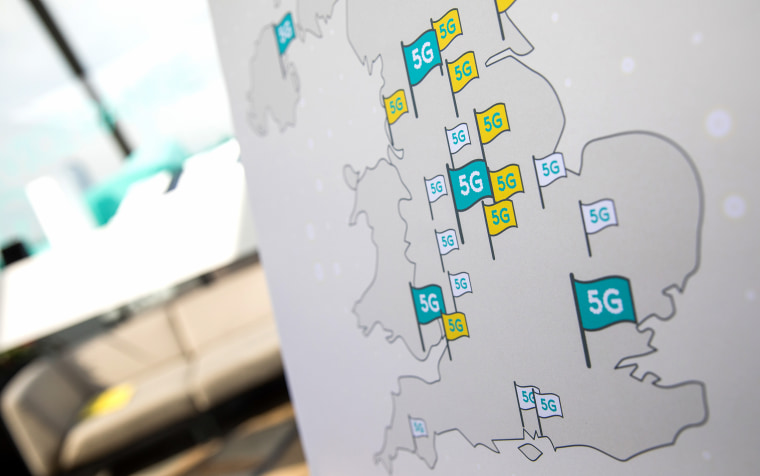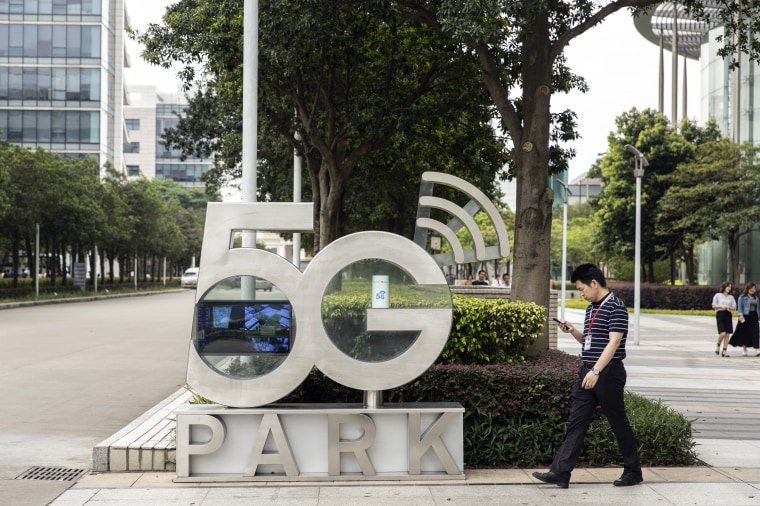WASHINGTON — One day after the Justice Department announced new charges against Chinese telecom giant Huawei, American officials bluntly predicted that China would use that company's presence in next-generation communication networks to steal corporate secrets, censor content and track dissidents.
Briefing reporters at an annual security conference in Munich, top U.S. officials from the White House, the Justice Department and the State Department sought to press their case that countries should follow the American lead and exclude Huawei from 5G networks now under construction.
So far, the push is not succeeding: America's closest ally, the United Kingdom, announced last month that it would allow Huawei equipment in some parts of its network.

UK officials have been adamant that they can mitigate the risk from the Chinese firm, and that they flatly disagree with U.S. warnings that any use of Huawei tech exposes a country to digital espionage and other mischief.
The U.S. officials — Robert Blair, special representative for international telecommunications at the White House; John Demers, assistant attorney general for national security; and Robert Strayer, deputy assistant secretary of state for cyber and international communications and information policy — used some of their toughest language to date in describing the threats they see from Huawei and China.
"We are so concerned about a lack of trust when it comes to the behavior of Chinese companies and the Chinese government itself," said Demers, whose division has brought dozens of cases involving intellectual property theft on behalf of China.
"What our cases have illustrated is a persistent, well-orchestrated, very top down, well-resourced effort to steal American and European intellectual property and the data of its citizens."
China, he said, is engaged in "outright state-sponsored, state-directed theft."
He described an "ecosystem of theft" by Chinese university students, researchers and companies that is designed to boost Chinese industry.
Strayer added a Chinese national intelligence law requires Huawei and all Chinese companies "to comply with the mandates of the security and intelligence services." Western governments have similar laws, but in China, he said, "there is no rule of law system there or independent judiciary — no checks and balances on the ability of the Chinese Communist Party to command Huawei or other companies to take actions" that would not be in the interest of Europeans or Americans.
"We want to make sure that whatever 5G becomes, it ensures freedom of speech, not the ability to censor messages which any government does not feel [are] supportive of their overall ideology," Blair said, adding that the U.S. wanted to make sure 5G could not be used to track dissidents, undermine freedom of assembly and steal personal data.
The remarks came on the heels of comments this week by U.S. national security adviser Robert C. O’Brien, who said the U.S. had evidence that Huawei could "access sensitive and personal information" through a so-called "back door" in its networks.
Huawei has said it would not spy on China's behalf, and China denies that it engaged in economic espionage.
In new charges Thursday, federal prosecutors in Brooklyn accused Huawei of helping the Iranian government spy on protesters, and also secretly aiding the North Korean government.
In a statement, Huawei called the new indictment "part of the Justice Department’s attempt to irrevocably damage Huawei’s reputation and its business for reasons related to competition rather than law enforcement."
"These new charges are without merit and are based largely on recycled civil disputes from the last 20 years that have been previously settled, litigated and in some cases, rejected by federal judges and juries," it said. "The government will not prevail on its charges, which we will prove to be both unfounded and unfair."
Though the U.S, officials in Munich used tough language Friday, they appeared to back off a threat made previously that the U.S. would curtail intelligence sharing with any nation that uses Huawei in its networks.
"Today we're of one mind that our intelligence sharing will continue with the Brits and with the Five Eyes," Blair said, referring to a close information-sharing agreement among five English-speaking countries — the U.S., the UK, Canada, Australia and New Zealand.

